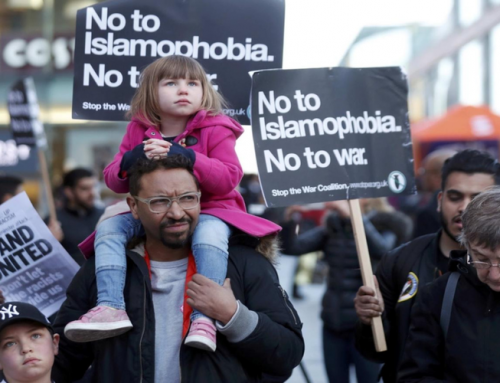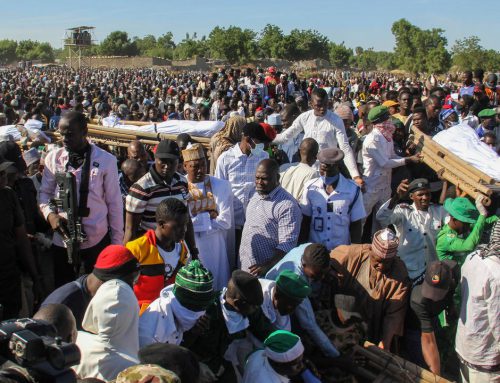In our time, ISIS and its counterparts derive their intellectual and doctrinal ideology from twisting the ancient Islamic literature. The opinions and ideas are often extracted of their contexts without any consideration to the difference in times and places, and perhaps the most significant topics that delight the advocates of this ideology to talk about are the topics of jihad, by which they justify their madness and thirst for blood. And they usually concentrate their focus on the subject of jihad al-Talab (Offensive jihad), by which they justify their aggression against non-Muslims, and we have seen what ISIS has done to the Yazidis and Christians in Sinjar, Mosul and other cities that have fallen under their control in absolute disregard to the fact that the gates of Jihad are allocated under the concept of Islamic politics which accommodates ijtihad (reasoning) and flexibility to amendments to a great extent unlike the section of worship rituals and others; what was fit for Muslims at the Umayyad and Abbasid eras in politics doesn’t fit at the moment because the time of empires is over and new “nation-states” concepts have emerged where wars do no good in the imposition of beliefs and ideas in a time where human intellect has evolved and the value of human rights has increased, and it’s no longer easy to impose your own opinions on your own son in your own house and under your own sponsorship, let alone imposing your belief on a whole nation.
We’re not here about to discuss the different perspectives in the Muslim scholars debate on defensive and offensive jihad, or the difference types of jihad and their legitimacy or the desperation of some scholars to justify offensive jihad and others’ desperation to condemn it. It’s unfortunately a subject that some modernist advocates and preachers are still dissociating with it from the reality of the twenty-first century when their minds over-contemplate the literature of the fourth and fifth centuries AH (9 C.A), forgetting that the scholars who discussed these subjects in the fourth and fifth century AH were suffering themselves a disconnection from the reality in which they lived, where the Abbasid empire halted the Islamic conquests policy, and there was no record of any case of offensive jihad at all; what have been noted in the history at the time was pushing back against Byzantine aggression on the Abbasids Northern borders. Therefore, we’ll address it in these lines the spirit which was founded by the Quran on that topic.
The holy Quran has been abundantly clear to associate between Jihad and aggressions in Surat Al-Tawba (which is also called Surat al-Qital “the flight” because it elaborate on it and details what relates to it) where it clearly shows that Jihad in Islam is either defensive or pushing against, and not offensive nor attacking, says almighty God (And fight the polytheists collectively, as they fight you collectively, and know that God is with the righteous)(al-Tawba 36), the reason for the order to fight here is because polytheists were fighting all Muslims, which required Muslims to retaliate by declaring jihad against them. The meaning of this verse is asserted in Surat al-Baqarah (And fight in the cause of God those who fight you, but do not commit aggression; God does not love the aggressors.)(190); the order to fight in this verse is limited to whomever fights and assaults against Muslims. And for those who didn’t assault against Muslims, God has forbade assaulting them, saying: (but do not commit aggression; God does not love the aggressors)(al-Baqara 190), and the holy Quran has emphasized this truth once again in Surat al-Baqarah in the verse (And fight them until there is no oppression, and worship becomes devoted to God alone. But if they cease, then let there be no hostility except against the oppressors.) (al-Baqara 193); the verse came at the beginning of the talk on the necessity of pushing back against assaults, and in this verse a strange gesture that is rarely noticed by speakers on the topic, which is that God has made fighting the oppressors and aggressors an aggression on its own (then let there be no hostility except against the oppressors.) (al-Baqara 193). And while everyone recognizes that fighting an oppressor is self-defense, yet God called this defense an aggression and described it as such in spite of permitting it and even making it mandatory. So, if retaliating against oppression is an aggression, and pushing back against oppressors as well, then what would be the raid on the innocents at train stations and public cafes in non-Muslim countries –who don’t know much about Islam and don’t care to know– other than standing in the way of calling for it. And what could we describe the ISIS eradication of Yazidis and Christians from the Muslim cities where they have lived in for thousands of years and have lived before amongst Muslims and were protected by them in the event of war and peace.
From the Quran’s keenness to use any opportunity to achieve peace and stop bloodsheds is God’s commandment to his Prophet (saw) to incline to peace and hold onto it, whenever he sees his enemies inclining to it. In Surat Al-Anfal, after the command to be prepared and ready to fight, God Almighty says (But if they incline towards peace, then incline towards it, and put your trust in God. He is the Hearer, the Knower.)( Al-Anfal, 61); God here is commanding his Prophet to incline to peace with his enemies who were fighting him and his message, even if their inclination to peace was treacherous, the Quran insists on not initiating the war on them, where God says to his prophet (If they intend to deceive you—God is sufficient for you. It is He who supported you with His aid, and with the believers.) ( Al-Anfal, 62).
The Prophet’s biography reflects that Quranic peaceful spirit, where in the total 29 battles of the Prophet Muhammad (saw), no fight occurred between him and his enemies except in nine of them. And that’s an empirical evidence on the Prophet’s compliance with the Quranic guidance by avoiding fights in any way possible. Seven of the battles were proactively initiated by the Prophet (saw) with his army in response to the frequent news that the enemy is preparing to invade al-Madina. By following the reasons behind all of the Prophet’s battles, one should indicate the fact that none of them was an offensive war, but they were proactively initiated as an act of defense against the other side’s violations of accords and insisting on fighting. And so were his battles with Qurayish and some Arab tribes, and his battles with the Jews or the Romans. Even the wars of the Rashidun Caliphs after the death of the Prophet (saw) did not come out of the defensive context; where the Persians and Romans didn’t stop attempting killing the successful political experiment in al-Madina, by inciting the North Arab tribes against it and even equipping armies to kill it in its stronghold. And so were the Caliphs responses to declare war on the Persians and the Romans to ward off their danger on the emerging Islamic state.
So, is there still any justification in this era for re-opening the subject of the offensive Jihad and raising discussions from the past that were not even justified at the time, let alone our time. And is there any justification for ISIS and its advocates and supporters to ignore the call to incline to peace and avoid war in the spirit of the Quran and the life of the Holy Prophet other than their ignorance about Islam and its message and mercy.
*Dr.Tarik Ladjal is Professor of History at Effat University in Jeddah, Saudi Arabia





